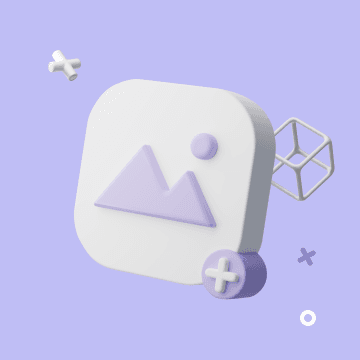
Beyond ChatGPT: Choosing the Right AI Tool for Course Scheduling Automation - Bika.ai Compared
The Buzz Around ChatGPT and the Real Need for Automation
The world of AI has been abuzz with the rise of tools like ChatGPT. Its ability to generate human - like text has captured the imagination of millions, from content creators to students looking for quick answers. However, when it comes to the practical aspects of business and educational operations, specifically tasks like course scheduling, the excitement around ChatGPT needs to be put into perspective.
Course scheduling is a complex and time - consuming process. Educational institutions, training centers, and even corporate training departments need to manage a plethora of variables such as course availability, room allocation, and instructor schedules. With so many options in the AI and automation space, the search for the right tool can be confusing. Even simple typos like "chatgot" or "chathpt" during a search can lead users down different paths, making it crucial to understand the specific capabilities of each tool. This article aims to compare Bika.ai, particularly its Course Scheduling template, with other popular tools like ChatGPT, Zapier, Make, and Airtable to help you make an informed decision for your course scheduling automation needs.
Mapping the AI & Automation Tool Landscape
Conversational AI: ChatGPT
ChatGPT, available at https://chat.openai.com/, is a conversational AI. Its primary function is idea generation and content drafting. For example, it can help write a description for a new course, generate teaching materials, or even answer general questions related to educational concepts. However, it lacks the ability to directly execute workflows or manage data in a structured way for tasks like course scheduling. It's more of a tool for generating text - based information rather than automating the actual scheduling process.
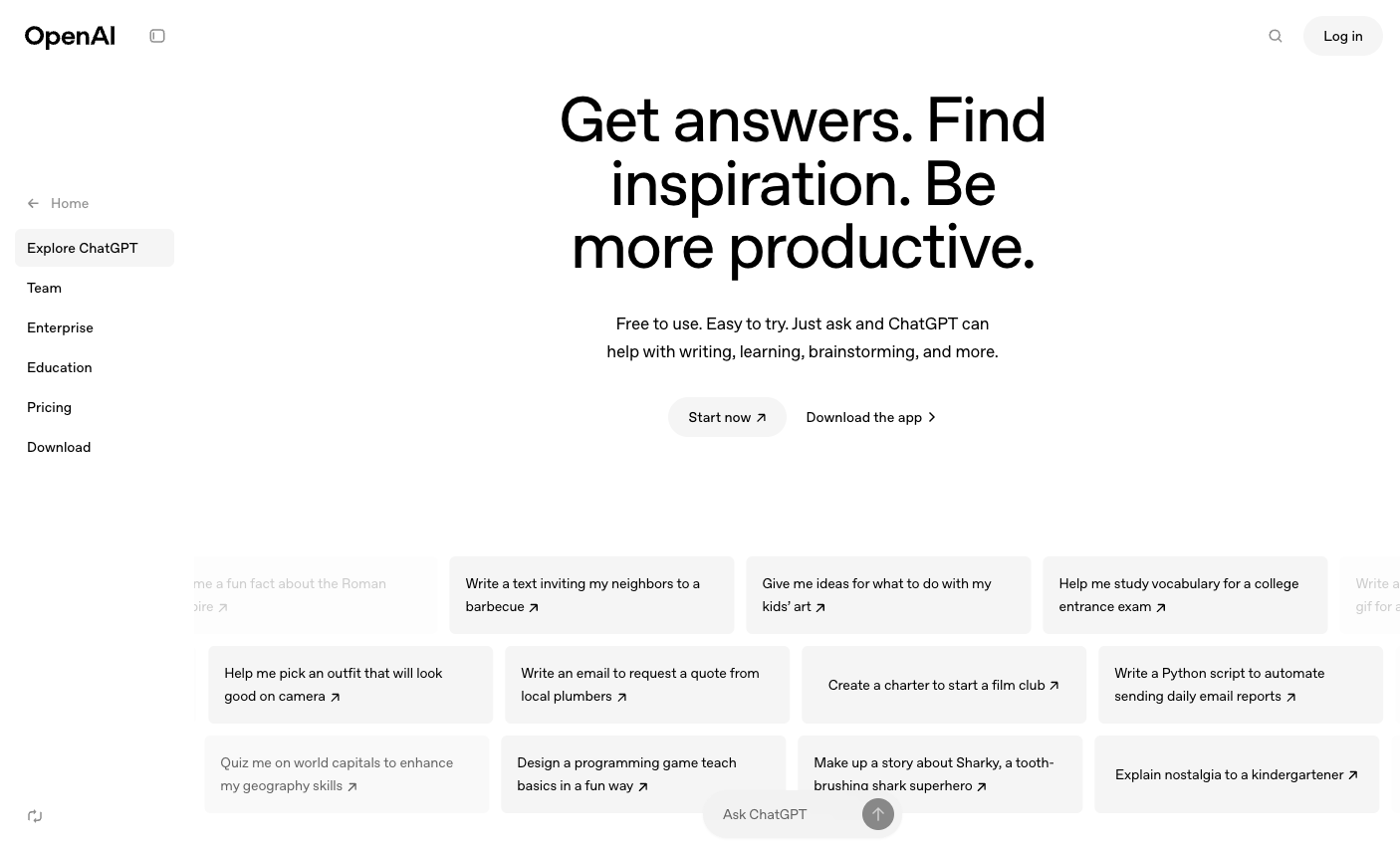
Integration Platforms: Zapier and Make
Zapier (https://zapier.com/) and Make (https://www.make.com/) are integration platforms (iPaaS). Their main purpose is to connect different applications. For instance, Zapier can link a course management system like Canvas to a calendar application such as Google Calendar. This allows for automatic updates, like when a new course is added in Canvas, it can be added to the relevant Google Calendar. However, they rely on existing applications and require multiple tools to be set up correctly. They don't have a built - in data management system specifically designed for course scheduling, and the setup can be time - consuming.
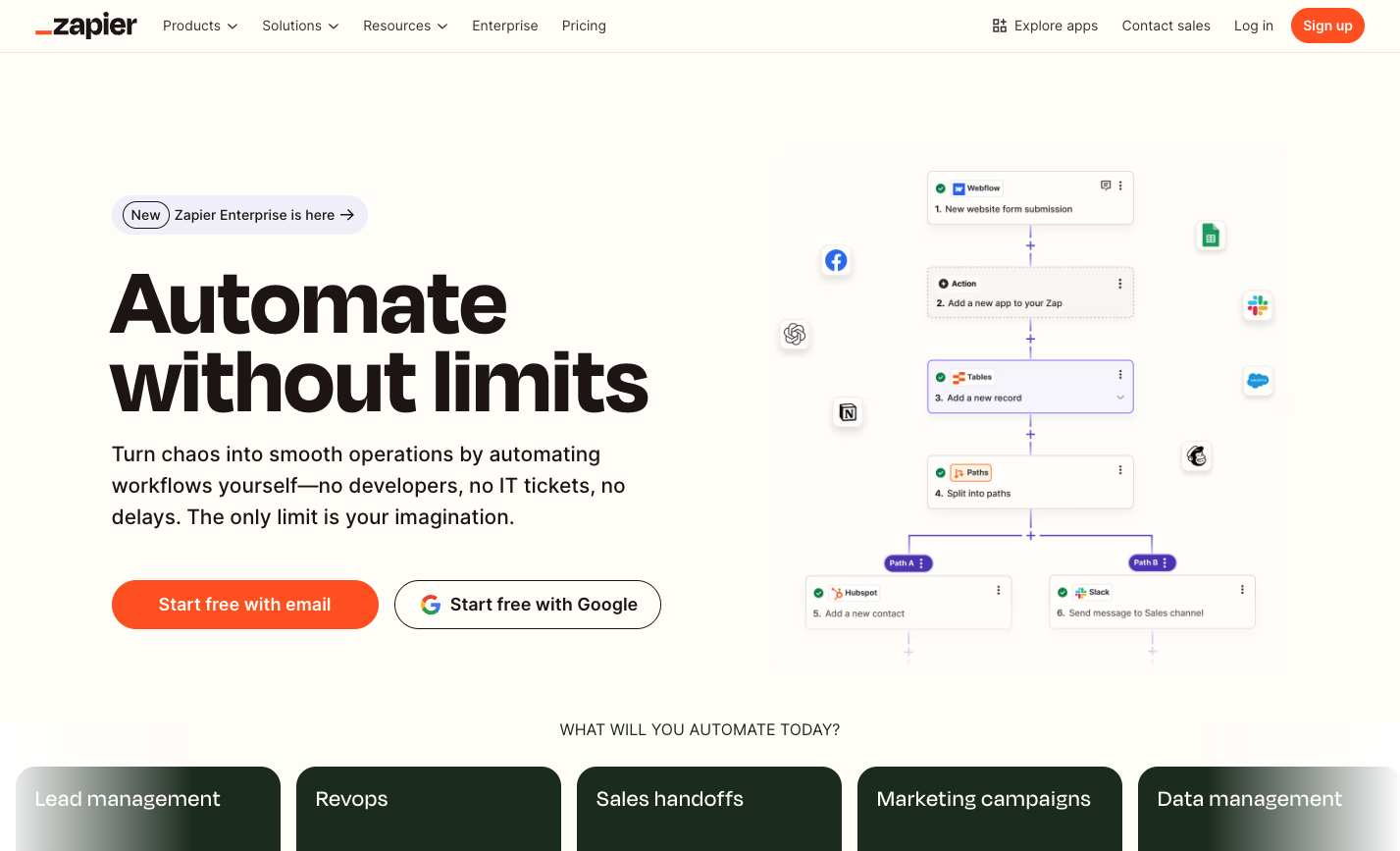
Smart Databases: Airtable
Airtable (https://www.airtable.com/) is a smart database tool. It's great for organizing and managing structured data. In the context of course scheduling, it can be used to create tables for courses, rooms, and classes. You can store details such as course names, room capacities, and class timings. However, Airtable may lack proactive triggers. For example, it won't automatically adjust the schedule if a room becomes unavailable; manual intervention is usually required.
Proactive AI Automation Databases: Bika.ai
Bika.ai is a proactive AI automation database. It combines data management with built - in AI automation. The Course Scheduling template within Bika.ai is a prime example. It centralizes all course - scheduling - related information into one intuitive system, making it easier to manage educational or training programs.
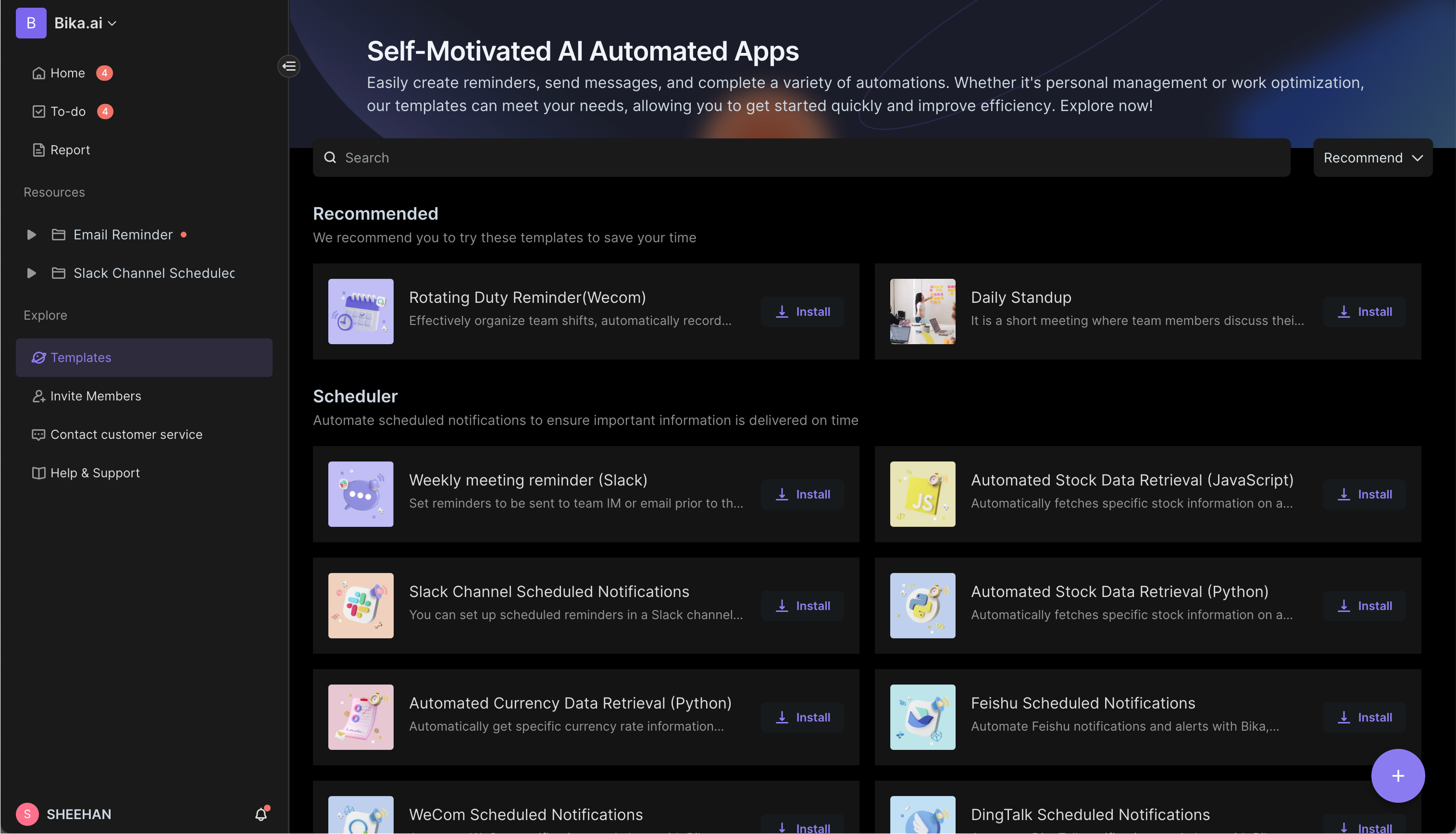
How Different Tools Tackle Course Scheduling Automation
ChatGPT
ChatGPT can assist in the pre - planning stages of course scheduling. It can generate ideas for course content, create descriptions for new courses, or help in formulating policies related to scheduling. But it can't handle the actual scheduling tasks such as allocating rooms, setting class timings, or managing instructor availability. It's a tool for generating text - based input rather than a scheduling executor.
Zapier and Make
Zapier and Make can be used to integrate different software systems involved in course scheduling. For example, they can connect a student enrollment system to a course - scheduling software. However, they need multiple external tools to be in place. If you want to automate the process of updating class schedules based on student enrollments, you need to have a database to store enrollment data, a scheduling software, and then use Zapier or Make to connect them. This setup can be complex and may require technical expertise.
Airtable
Airtable can store all the necessary data for course scheduling in a structured manner. You can create tables for courses, rooms, and classes, and establish relationships between them. But when it comes to proactive actions, such as automatically rescheduling a class when a professor is unavailable, Airtable falls short. It requires manual intervention to update the schedule, which can be time - consuming, especially in large educational institutions.
Bika.ai
Bika.ai's Course Scheduling template offers a more integrated approach. It has built - in AI that can analyze data from its interconnected databases (All Courses, All Rooms, and All Classes) to proactively suggest schedule adjustments. For example, if a room is double - booked, the AI can suggest alternative rooms based on availability and capacity. It simplifies the process by centralizing all information, reducing the need for multiple tools and complex integrations.
Bika.ai's Edge: The Course Scheduling Automation Template
Key Features
The Course Scheduling template in Bika.ai has several key features. First, it has centralized information. All relevant scheduling details, including courses, rooms, and classes, are in one place. The All Courses database contains details like course name, description, code, credit rating, and more. The All Rooms database provides information about room building, number, capacity, etc. And the All Classes database manages the class schedule, linking to the relevant courses and rooms.
Second, it has an intuitive design. Navigating through the different databases to add, modify, or view information is easy. Whether you're an administrator, scheduler, or educator, you can quickly understand how to use the template.
Third, it enables efficient management. By optimizing the use of resources such as courses, rooms, and classes, it helps in streamlining the scheduling process. For example, it can ensure that a course with a large number of students is allocated a room with sufficient capacity.
Workflow
The workflow of the Course Scheduling template is straightforward. First, you access the template and navigate to the All Courses database to add or manage course details. Then, you use the All Rooms database to handle room information. Finally, in the All Classes database, you set up the class schedule by linking the relevant courses and rooms and specifying the start and end times. The interconnected databases ensure that any changes in one database are reflected in the relevant areas of the others.
Benefits
The benefits of using Bika.ai's Course Scheduling template are numerous. It saves time by automating many aspects of the scheduling process. For educational institutions, it can lead to better resource allocation, ensuring that courses, rooms, and instructors are used efficiently. It also provides a more accurate scheduling solution, reducing the chances of errors such as double - bookings. For those looking for advanced solutions beyond the basic capabilities of "chathpt" - like tools, Bika.ai offers a comprehensive and proactive approach to course scheduling.
Guidance: Selecting Your Course Scheduling Automation Stack
When ChatGPT + Zapier/Make Might Be Suitable
If you need help with generating content for courses, such as course descriptions or teaching materials, and you already have existing software systems that need to be integrated, then ChatGPT combined with Zapier or Make could be a good choice. For example, if you have a custom - built course management system and a third - party calendar application, Zapier can connect them, and ChatGPT can assist in creating the necessary text - based content for the courses.
When Airtable Is a Good Base
If you primarily need to organize and manage the data related to course scheduling in a structured way, and you don't require a high level of proactive automation, Airtable is a great option. It's user - friendly and can be easily customized to fit your specific data - storage needs for courses, rooms, and classes.
When Bika.ai Is the Optimal Choice
If your course - scheduling tasks are data - intensive, and you need a proactive, all - in - one platform, Bika.ai with its Course Scheduling template is the way to go. Educational institutions and training centers that want to optimize their resource allocation, reduce manual errors, and have an automated system that can adapt to changes in real - time will find Bika.ai invaluable.
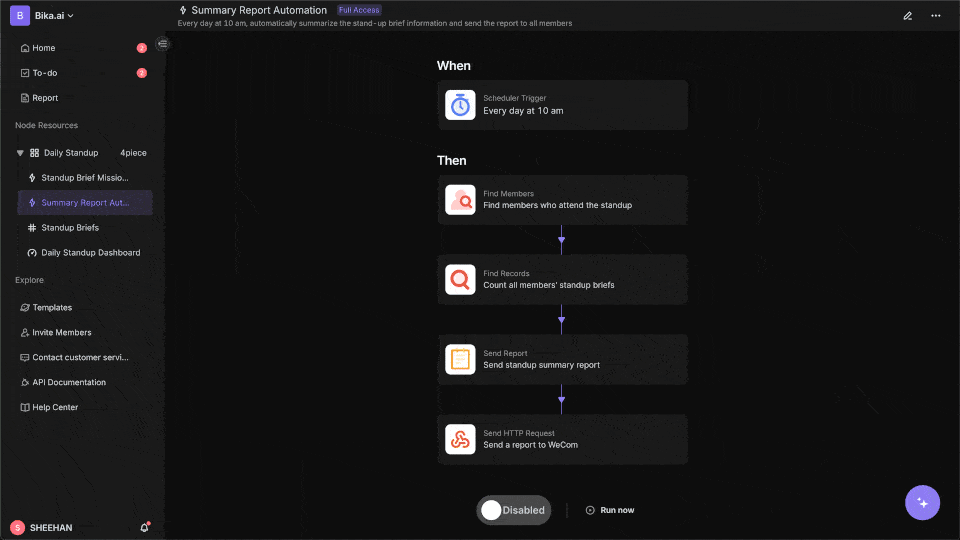
Conclusion: Future - Proofing Your Course Scheduling Workflows
In summary, while ChatGPT has its place in the AI landscape for content generation, tools like Zapier, Make, Airtable, and Bika.ai offer different approaches to course - scheduling automation. Zapier and Make are great for integrating existing systems, Airtable is ideal for data organization, but Bika.ai stands out with its proactive AI - powered Course Scheduling template.
Choosing the right automation strategy is crucial for the efficiency and scalability of your course - scheduling tasks. By understanding the capabilities and limitations of each tool, you can make an informed decision that will future - proof your educational or training operations. We encourage you to explore Bika.ai's Course Scheduling template to experience the benefits of a comprehensive, proactive, and user - friendly course - scheduling automation solution.

Recommend Reading
- Beyond Tracking: How AI - Powered Automation Transforms Habit Building for Professionals
- Beyond Tracking: Automating Recruitment Workflows to Build Consistent Habits
- Automating Financial Workflows: Unveiling the Best Email Client for Mac and Bika.ai's Sales Contract Automation
- Beyond ChatGPT: Choosing the Right AI Tool for Course Scheduling Automation - Bika.ai Compared
- Beyond ChatGPT: Choosing the Right AI Tool for Legal Case Tracking and Billing Automation - Bika.ai Compared
Recommend AI Automation Templates
